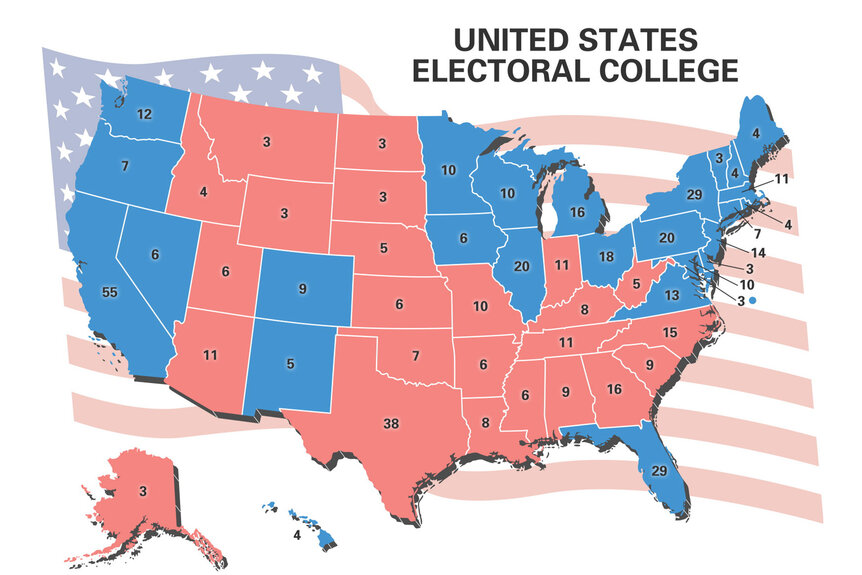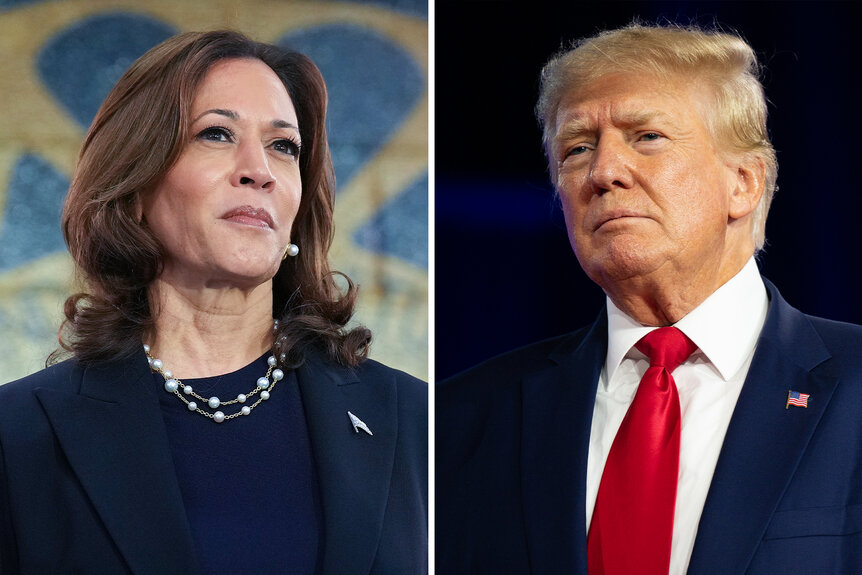Create a free profile to get unlimited access to exclusive show news, updates, and more!
Electoral Votes vs. the Popular Vote — What Is the Difference?
For starters, the winner of the popular vote doesn’t always win the presidential election.
Every presidential election, all eyes are on the road to 270.
The Electoral College has played a defining role in deciding the presidency since 1787, but what about the everyday citizen’s vote at the polls? How will the popular vote factor into the presidential election between Vice President Kamala Harris and former President Donald Trump?
As you keep up with election coverage on November 5, here’s what you need to know about the difference between the popular vote and electoral votes.
RELATED: Jimmy Fallon Weighs in on Donald Trump's McDonald's Visit and Arnold Palmer Comment
What’s the difference between the popular vote and electoral votes?
When you vote in a presidential election, your individual vote for a candidate counts toward the “popular vote” in your state. But the nationwide popular vote does not necessarily dictate who wins the presidential election.
Electoral votes cast by members of the Electoral College, however, do determine the outcome of a presidential election. There are a total of 538 electoral votes and a candidate must win at least 270 to be elected.
The number of electors each state has is equal to the number of lawmakers the state has in Congress, with three being the minimum. Every state is given two electoral votes for their two senators, plus the number of representatives they have in the House. For example, California has two senators and 52 representatives, allotting the state 54 electoral votes. Alaska only has one representative in addition to its two senators, so the state gets three electoral votes.
"When American voters go to the polling place on Election Day, they aren’t voting for a specific candidate,” Harvard Kennedy School explains. “Instead, they’re voting for a group of electors who have pledged to support their candidate of choice. Generally, these electors are picked by state parties. They tend to be individuals who are active in their party, such as elected officials and political activists.”
RELATED: Kamala Harris Just Reviewed Maya Rudolph's SNL Impression from Season 50
How does the popular vote affect electoral votes?
Electoral votes typically coincide with the winner of the popular vote in each state, as nearly all operate on a “winner-take-all” policy, with the exception of Nebraska and Maine. So if a candidate wins the popular vote in a state with a big population, like Texas or California, that candidate will gain a large number of electoral votes.
Because of how this system is set up, presidential candidates tend to spend more time campaigning in swing states with large populations — like Pennsylvania and Michigan — to gain support in an effort to secure their electoral votes.
“Ultimately, these are the states where presidential elections are decided. It’s where 75% or more of a candidate’s money is spent and on Election Day whoever wins the most swing states ends up becoming president,” John Hudak, a former Brookings expert, explained. “Swing states matter because the U.S. presidential election does not happen by a national vote or a national referendum. The presidential election is 50 individual state races and a race in the District of Columbia.”
The winner of the popular vote doesn’t always win the election
“The electors are chosen in each state, the candidate who wins each state also wins that state’s electoral votes,” NBC’s Tom Brakow explained in a 1976 news broadcast. “The bigger the state, of course, the more electoral votes. So it is possible that a candidate can pile up a lot of popular votes with big margins in smaller states with fewer electoral votes while his opponent gets just enough popular votes to win the big states with a lot of electoral votes and thus that candidate, although losing the popular vote, wins the electoral college.”
This scenario has happened five times in our nation’s history, most recently in 2016. While Hillary Clinton won the popular vote by more than two percentage points, Trump won the Electoral College with 304 votes.
How to watch election night coverage on NBC
NBC is covering the election on November 5 from every angle and platform. NBC’s election coverage will be available on your local NBC affiliate channel. You’ll also be able to watch it online with a cable login via DirecTV Stream, fuboTV, or Hulu + Live TV. You can also check out NBC's 24/7 YouTube channel for live coverage on election night.
On Peacock’s special “Election Hub,” you can access the platform’s Multiview experience for real-time election coverage from NBC News Now, Electoral College results from the NBC News Decision Desk, and watch Steve Kornacki on the live Kornacki Cam for live updates on polling numbers.





















